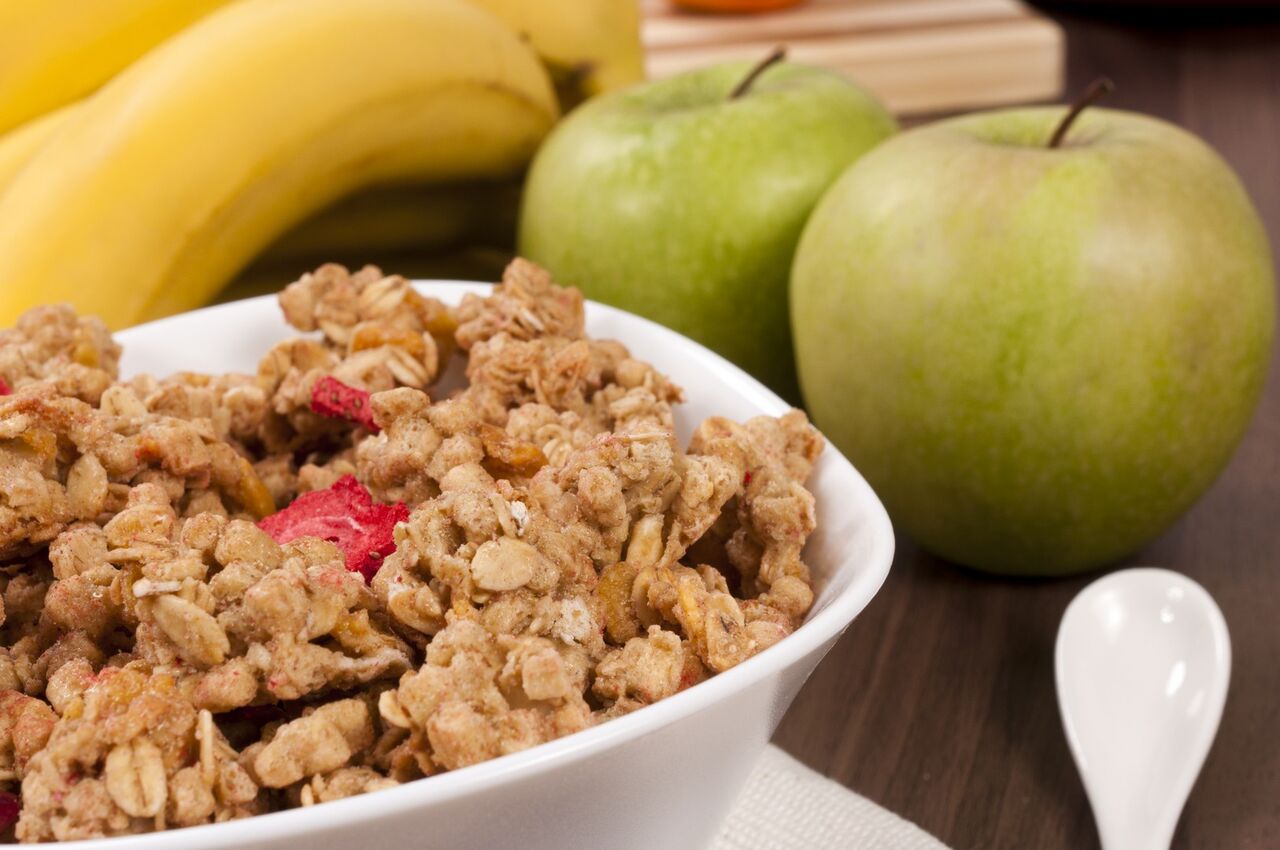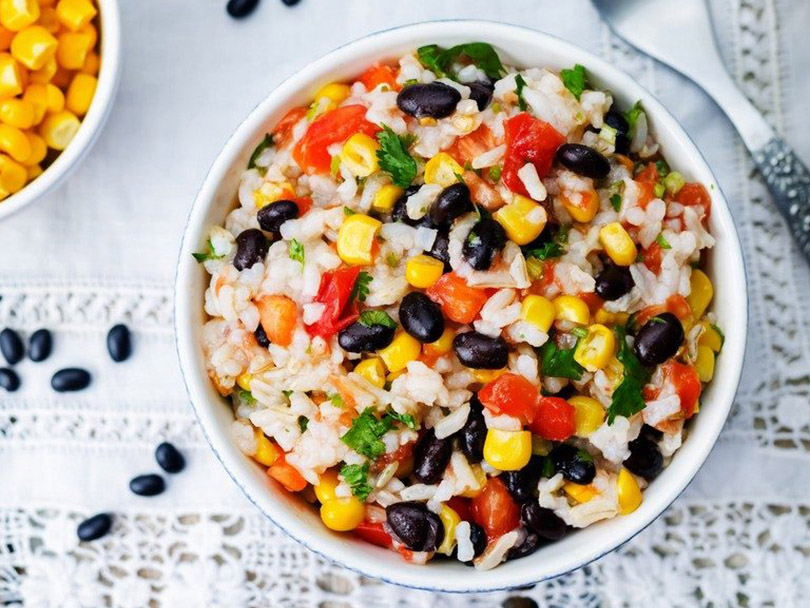diet
Nutrition Tips to Develop Healthy Eating Habits
Even in the midst of day-to-day running, it is possible to change some eating habits that allied to the practice of physical activities will contribute a lot, to a healthy life and increase the quality of life. See Nutrition Tips to Develop Healthy Eating Habits that will make all the difference in your health. Check it: So better stay healthy all the time.
1) Ginger and cinnamon are thermogenic foods that help speed up metabolism. Always count on them. You can add cinnamon sticks or pieces of ginger in the cold water and drink throughout the day.
2) Do not use salad sauces. Choose lemon, olive oil, vinegar, and salt.
3) Prefer the whole foods like rice, pasta, bread, and pasta. They are healthier and moreover, rich in fiber beneficial to the gut.
4) Reduce the consumption of alcoholic beverages. In addition to caloric, they are not beneficial to health.
5) Sausage, sausage, ham, mortadella, and salami, called inlaid foods, should be avoided. They are high in sodium, preservatives and fat.
6) Choose white or buffalo cheeses. The more yellow the cheese, the more fat it has.
7) Substitute sugar for sweetener in all beverages. Choose sucralose or stevia type sweetener. They are natural and leave no bitter or residual taste in the mouth. Try it!
8) Butter, sour cream, whipped cream, foods with clotted pastry are high in saturated fats. Avoid them because their consumption can raise blood cholesterol levels.
9) Be Ruler: Make 5 to 6 meals a day, skip none. Feeding yourself every 3 hours contributes to weight loss, if that is your intention, as well as giving you more satiety so that you feel less hungry.
10) Introduce the fruits into your eating routine. It can be in natura, in the form of juice or fruit salad. Eat at least three servings a day. Fruits have vitamins and minerals important for health. Each fruit is rich in a different vitamin, so always remember to diversify your intake.
11) Vegetables and vegetables should always accompany lunch and dinner like salads, raw, and cooked vegetables. They are rich in fiber vitamins and minerals, so the more variety, the better, as each is rich in a different vitamin. Remember that vegetables should occupy half of your plate assembled. But have moderation with the carbohydrate-rich vegetables like potato, cassava, and carrot.
12) Do not use spices ready for food. They possess a lot of sodium (salt), and in the long run, you can develop high blood pressure. Prefer natural seasonings like onion, garlic, and salt in small quantity.
13) To help you reduce salt from meals, use herbal salt. He is outstanding and can be prepared at home. Use 50g of 3 herbs of your choice (e.g., thyme, rosemary, celery) and add 50g of normal refined salt. This way you will have 200g of herbal salt. Use it to season meats, salads, and other foods.
14) Fried foods are harmful to health due to the high amount of fat. Prefer the baked and grilled. If you have non-stick cookware at home, grill it without adding oil or olive oil, it gets very good.
15) Always prefer lean meats with no apparent fat. Remove the skin from the chicken before preparing it, so that it stays healthier.
16) Drink 6 to 8 glasses (200ml) of water per day. Hydration regulates various functions of our body, helps maintain proper bowel function, and is great for skin and hair. It is not necessary to only drink water: juices, teas (without caffeine like mate and black) and coconut water are also excellent allies in hydration.
17) Give preference to skimmed milk and yogurts because the fat content in them is reduced, making them beneficial to health.
18) The main meals of the day are breakfast, lunch, and dinner, never skip them and make good food choices.
19) You can choose yogurt, fruit and nut mix as an option in intermediate snacks.
20) Follow the above tips, modify your lifestyle. Do not do crazy diets with severe calorie restriction and exclusion of nutrients like carbohydrates and fat, for example. Our body is a system that needs all the nutrients (carbohydrates, fat, proteins, vitamins and minerals) in balance to be and stay healthy.

Drink more water: six to eight glasses a day contribute to the body’s functioning. Also, proper hydration brings positive consequences to gut, hair, skin, and nails. Keep a bottle of water always close by. Take a break from the water at work. Create a rule with your glass of water: when empty, fill it. Put your cell phone to wake up or create alerts in your email to remind you to drink water.
2) Avoid skipping meals: Ideally, make at least three meals a day (breakfast, lunch, and dinner), interspersed with small snacks, with a three to four-hour interval between meals.
3) Include Whole Foods in the Diet: Whole-grain foods, such as bread made from 100% whole meal flour, contribute more fiber to the diet, helping to maintain blood sugar levels at normal levels. Also, they are an important tool for satiety and weight control.
4) Stay alert to salt: excess increases the risk for high blood pressure and cardiovascular disease, as well as causing fluid retention and that feeling of swelling. Use little salt in the preparation of food, investing in natural seasonings (such as garlic, onion and fresh and dried herbs). Avoid frequent consumption of inbuilt foods such as sausages, salami, sausage, and ham.
5) Attention with alcoholic beverages: it contains 7 kcal per gram, almost as much as fat, and has no nutritional benefit. In addition to being a source of empty calories, alcohol can lead to hypoglycemia, followed by hunger spikes. The excess still impairs the functioning of the liver.
6) Maintain the pleasure of eating: avoid eating fast, as the mechanical contact of food with the mucosa of the stomach stimulates the production of substances that affect satiety. If a meal is done in 10 minutes, there is no time to tell the brain about satisfaction. Therefore, eating slowly is necessary for the body to perceive the food intake and, consequently, to control the appetite and the sensation of satiety.
7) Consume three to five fruits per day: in addition to excellent choices for intermediate snacks, they contribute to the supply of vitamins and minerals as well as fiber, which help maintain stable blood glucose and control weight.
8) Avoid major restrictions: restricting the amount of food ingested too much will stop consuming important nutrients for the body. Also, excluding some nutrients (carbohydrate, protein, fat) for a long time impairs the proper functioning of the organism and makes it difficult to maintain the weight, favoring the accordion effect.
9) Moderation in caffeine consumption: Foods like coffee, chocolate, cola-based soft drinks and mate tea are high in caffeine, which in excess increases the release of adrenaline. This hormone increases blood pressure, overloading the heart. The goal is to stay with up to three cups a day.
10) More good fats: vegetable oils (extra virgin olive oil, canola, soy, etc.), nuts, avocado, fish and vegetable cream contribute to reducing the risks of heart disease.











